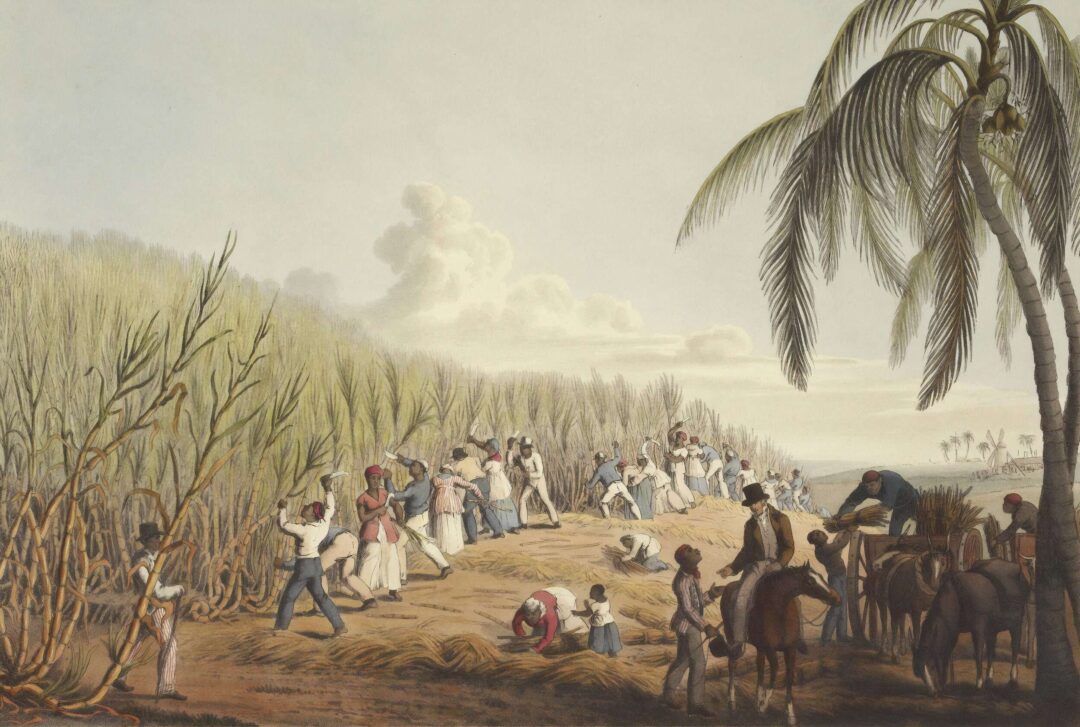White brother or sister—do you need to apologize for slavery? I’m not using the word “apologize” as a way to express regret. We should all lament the history of slavery. I mean it here as a way to accept personal responsibility. Maybe that question sounds ridiculous. Institutions like the Presbyterian Church in America or the Southern Baptist Convention have issued apologies for slavery, and have received plenty of criticism for doing so. But those institutions have roots going back over a century and have an ugly track record when it comes to race-relations–those apologies seem appropriate.
But what about you apologizing?
I don’t know you, so we’ll use me as an example. I was born in the late eighties to white parents who have white parents. I never cracked a bullwhip. In fact, I can’t find anyone in my lineage who did. I come from a long line of Anabaptists, notable for their pacifism, quilt-making, and consistent calls for abolition over the centuries.
If anybody’s good, I’m good, right? #notallwhitepeople?
Speaking of not all white people, not all white people will disagree with what I’m writing. Some struggle with white guilt. Up to this point I’ve intentionally framed the question narrowly because many of us have conceptions of culpability, privilege, and systemic racism that are too narrow. So let’s look at a few:
1. Culpability
I am not personally culpable for something that happened hundreds of years ago. I, as a white man at this time and place, am no more guilty of owning slaves than I as a protestant am for violence in Northern Ireland before I was born. But that’s not the end of it. While I may not have culpability, I have some other things, namely:
2. Privilege
People often speak of privilege in caricatures, suggesting that the notion of white privilege bypasses a person’s hard work and ignores steps society has taken to offer opportunities to minorities. I don’t know what you have in your head when you hear someone reference privilege, but here is what I mean:
I mentioned my grandparents earlier. That’s as far as you have to go back in my lineage to get to folks who were really poor. They were about as broke as broke gets. My grandfathers both grew up bouncing from farm to farm amongst relatives in Appalachia. Both overcame seemingly impossible situations. Both pursued opportunities and education, one becoming a successful small-business owner, the other a college professor. Both created, through a ton of work and perseverance, a comfortable living for their families. I am a direct beneficiary of that.
Well, hang on. We’re talking about some guys who lived the American dream, right? They worked their tails off and it paid off for them. What’s the problem?
3. Systemic Racism
The men I’ve mentioned worked very hard. From what I know of their personal histories, they didn’t step on folks to do it, either. But here’s the thing—there were relatively few, if any structures set up in their way. Neither were ever denied an education or business loan because of their skin color. When purchasing homes, a key to both of their successes, neither was ever told what neighborhoods were open to them. They were born into desperately poor situations, but neither faced formal opposition in the classroom, bank, or real estate office. And in that sense, they were privileged compared to people their age who were born with darker skin.
And I am privileged in that I benefit from their success.
Read more on systemic racism here.
We’ve only gone back two generations, but I trust you can see in your own life the positive effects of your grandparents on your life and economic situation. If so, know that privilege was denied to your peers with darker skin.
And we’re only talking about the last eighty years. Things become increasingly disparate the further back you go, to put it very mildly.
That’s why the question about whether you’re responsible for slavery is so narrow as to be unhelpful. Slavery is one (heinous) fruit from the tree of white supremacy, but far from the only one. Reconstruction, segregation, red-lining, and much more fill in the gaps of history between then and now—the cascading effects of racism flowing from generation to generation. Rather than seeking defensively to justify ourselves, we would do better to spend that energy advocating for others. We can do this knowing we are free from condemnation (Romans 8:1).
So, back to me and you. If you’re white, you may receive no direct benefit from the centuries old practice of slavery in America. But white supremacy has shaped your life far more than you realize. Or, more accurately, it has shaped the lives of your minority brothers and sisters in ways you likely don’t fully appreciate. Recognizing historical asymmetry does not diminish the hard work done by people like my grandfathers. It reflects God’s concern for justice (Proverbs 11:1), the marginalized (Psalm 140:12), and reflects the Gospel-priorities commanded in Scripture (I Corinthians 6).
Before we pigeon-hole the conversation in the period of slavery, let’s step back and view the whole historical picture. Let’s look at the whole, ugly truth and let’s lament. There may be other things we can do, but let’s start there. We may not have incurred personal guilt for any of this, but to the extent that we fail to recognize privilege while we continue to enjoy benefits specifically denied others on the basis of their skin color, we are at least ignorant, and at worst, complicit.
Prayer Requests:
- Pray that God would give more Christians an accurate understanding of the history of racism.
- Pray that God would show us persisting examples of racism in our own lives and society.
- Pray that God would comfort his people, help them lament, and point them to the hope of His coming perfect justice.












